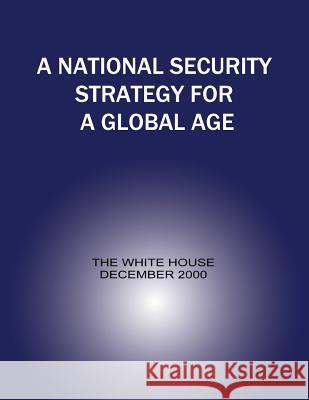A National Security Strategy for a Global Age » książka
A National Security Strategy for a Global Age
ISBN-13: 9781481193153 / Angielski / Miękka / 2012 / 90 str.
We are blessed to be citizens of a country enjoying record prosperity, with no deep divisions at home, no overriding external threats abroad, and history's most powerful military ready to defend our interests around the world. Americans of earlier eras may have hoped one day to live in a nation that could claim just one of these blessings. Probably few expected to experience them all; fewer still all at once. Our success is cause for pride in what we've done, and gratitude for what we have inherited. The most important matter is what we now make of this moment. Some may be tempted to believe that open markets and societies will inevitably spread in an era of expanding global trade and communications, or assume that our wealth and power alone will protect us from the troubles of the outside world. That approach falls for the old myth of an "outside" world, and ignores the defining features of our age: the rise of interdependence. More than ever, prosperity and security in America depend on prosperity and security around the globe. In this age, America can advance its interests and ideals only by leading efforts to meet common challenges. We must deploy America's financial, diplomatic and military resources to stand up for peace and security, promote global prosperity, and advance democracy and human rights around the world. This demands strengthening our alliances with Europe and Asia, and adapting them to meet emerging challenges. Our alliances in Europe and Asia are stronger because they are organized to advance a permanent set of shared interests, rather than to defeat a single threat. We must continue working with our allies towards a peaceful, democratic, undivided Europe, with NATO as a deterrent to new conflict and a magnet for new democracies. In Asia, we must build on strategic alliance with Japan to define new approaches to post-Cold War threats. And, we must enhance cooperation with South Korea as we encourage North Korea's emergence from isolation and continue to diminish the missile threat. Just as we strengthen our alliances, we must build principled, constructive, clear-eyed relations with our former adversaries Russia and China. We must be mindful of threats to peace while also maximizing chances that both Russia and China move toward greater internal openness, stability and prosperity, seizing on the desire of both countries to participate in the global economy and global institutions, insisting that both accept the obligations as well as the benefits of integration. With Russia, that means continuing our work to reduce the nuclear danger, to assure strategic stability, and to define its future role in Europe, while supporting the emergence of democratic institutions and the rule of law. With China, that means continuing to press for adherence to nonproliferation standards and peaceful dialogue with Taiwan, while holding Chinese leaders to the conditions of entry into the WTO, which offer the best hope of internal reform. To protect the peace and promote security, we must work to resolve conflicts before they escalate and harm vital U.S. interests. We also must identify and address new national security challenges, accentuated by new technology and open borders. We have identified a new security agenda that addresses contemporary threats such as the proliferation of nuclear, chemical and biological weapons, terrorism, and international crime. New efforts must continue to build on initiatives such as the extension of the Nonproliferation Treaty, the containment of nations seeking to acquire and use weapons of mass destruction, increased antiterrorism cooperation, stepped up efforts to combat trafficking in drugs, arms, and human- beings, and our first-ever national strategy for cybersecurity. Finally, there can be no security where there is no hope of prosperity. We must continue to promote the spread of global markets in ways that advance economic growth, honor our values, and help alleviate economic dispar
Zawartość książki może nie spełniać oczekiwań – reklamacje nie obejmują treści, która mogła nie być redakcyjnie ani merytorycznie opracowana.











